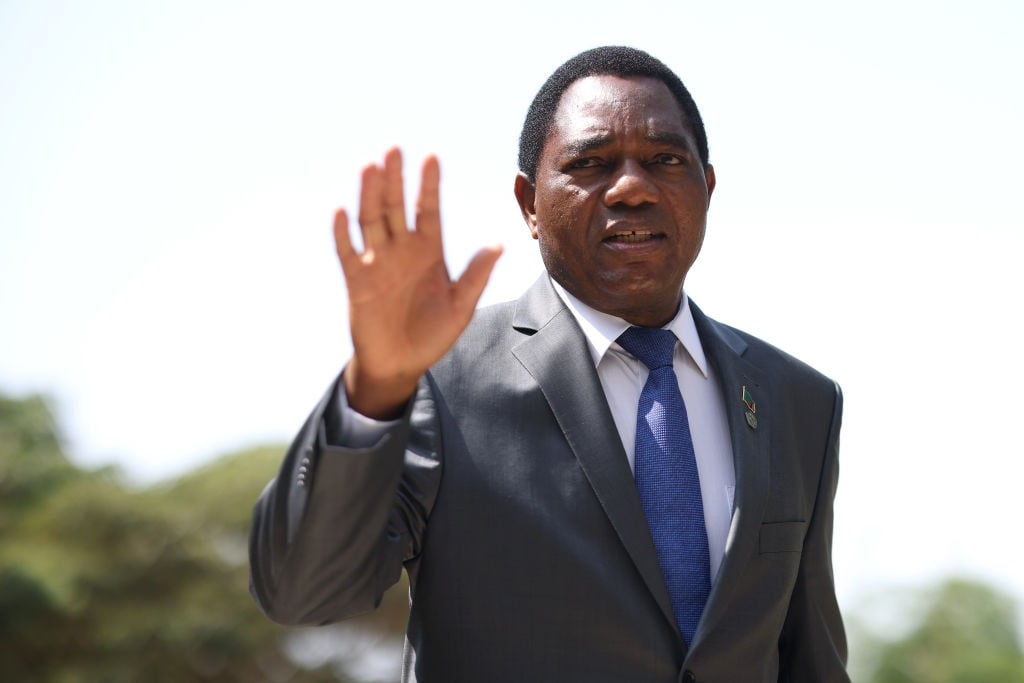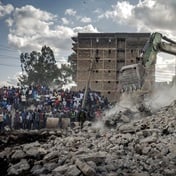
- One of the major sticking points is that money owed to China by Zambia belongs to state and private creditors.
- The cost of living is biting ordinary citizens as the kwacha loses value against major currencies.
- There's now a big presence of South African firms in Zambia.
Despite being the most topical issue in Zambia, the debt crisis is far from being addressed because of disagreements within the G20, particularly between the United States and China.
The World Bank and the International Monetary Fund pushed the G20 to create the Debt Service Suspension Initiative (DSS) at the beginning of the Covid-19 pandemic.
The DSSI, which was established in May 2020, aided nations in focusing their efforts on containing the pandemic and defending the lives and livelihoods of millions of the most vulnerable individuals.
Before it ended in December 2021, 48 of the 73 eligible nations took part in the programme.
According to the most recent World Bank estimates, the project postponed about R232 billion ($12.9 billion) in debt-service payments that participating countries owed to their creditors from May 2020 to December 2021.
Private creditors were urged by the G20 to join the initiative on par with public creditors. Unfortunately, only one private creditor participated.
Zambia's external debt stands at R339 billion ($18.6 billion). China is the single biggest creditor in Zambia, with an estimated R109 billion ($6 billion).
Under President Edgar Lungu, in 2020, Zambia became the first country to default on its payments to creditors during the Covid-19 pandemic.
The debt crisis is now a geopolitical issue in Zambia, with the US accusing China of bully tendencies, and this is driving macro-economic instability.
Marisa Lourenço, a political and economic risk analyst, noted that part of the money owed to the Chinese belonged to private lenders, and not the state.
While for diplomatic reasons, the government could agree to soften up, private lenders want their money as soon as possible, even at a loss. But Zambia cannot afford to pay.
There's a desire that the state pay private lenders in China and that the debt owed by Zambia become a government-to-government agreement.
On the sidelines of the Democracy Summit in Zambia last week, News24 spoke to regular people living in the country.
Ndibali Mwale, a cab driver, said life had become costly under President Haikande Hichilema's government. A former secondary school mathematics teacher, he understands where the source of the problem is - the debt crisis.
'In Zambia, we have seen worse'
"Basic commodities such as fuel, sugar and cooking oil, to mention a few, are driving the cost of living up," he said.
Mwale owns three taxis and drives one of them. He projected that over the weekend, he could make K10 000 ($476), which is almost twice what he makes usually, because Lusaka was a hive of activity with US Vice President Kamala Harris in town.
"It's going to be a good payday for me, but unfortunately the kwacha has of late lost value, so I will have less disposable income."
The kwacha's value is back to what it was during the end of Lungu's tenure.
Caesar Cheelo, of the Southern African Institute for Policy and Research, said: "If you are seeing too many fluctuations in the exchange rate (kwacha to the dollar), then you're in trouble.
"In 2015, as Lungu was coming into power, there was a quite bit of turbulence there. Inflation went up by 18% and the exchange rate collapsed by 40%. Then things improved, but with Covid-19, inflation spiked to 22% and the exchange rate collapsed by 41%," he said.
"There is a tendency now, for example, this year the exchange rate is K21 to US$1. It's a historic high, so when you're in the eye of the storm, you think 'the sky is falling', but it might not be that bad.
"If you go back to 1980, you will realise that in Zambia we have seen worse and, given time, the systems, the knowledge and technology, things will correct themselves, as long as we have the right regulations, policies and political will."
Cheelo added that the optimism of hope did not take away Zambia's "real challenging economic issues", such as jobs and the cost of living.
But the IMF has warnings for Zambia.
'I'm coining it'
If the debt issue is not dealt with, coupled with challenges such as climate change and low prices of mining commodities like copper, danger lies ahead.
"There are significant uncertainties going forward. Delays in debt restructuring, weather-related shocks, and copper prices remain the dominant sources of risk. Globally, an abrupt growth slowdown would reduce copper prices, while an escalation of Russia’s war in Ukraine would increase fertiliser and food prices, increasing inflation and spending on agricultural inputs," the IMF said on Thursday.
Another person's loss is another's gain, and the big winners are expatriates and foreign businesses.
Pete Blomkamp is a South African involved in transport and logistics. A weak kwacha has been good for him.
"I bring in trucks of mayonnaise and other commodities from SA to Lusaka. Zambians hire me to bring their stuff over and when its like this (current exchange rate) I'm coining it," he said.
There's a huge presence of South African companies in retail, fast food, banking and entertainment.
Sean (not his real name) arrived in Lusaka in 2017 from Johannesburg and works at a popular nightclub called Chicago.
He does not miss home.
"We brought the SA culture here. As you can see, we play South African music. Any beverage you find back home is here, and besides, the kwacha is almost at par with the rand and earning an expatriate's salary is a good deal," he said.
The News24 Africa Desk is supported by the Hanns Seidel Foundation. The stories produced through the Africa Desk and the opinions and statements that may be contained herein do not reflect those of Hanns Seidel Foundation.




 Publications
Publications
 Partners
Partners























